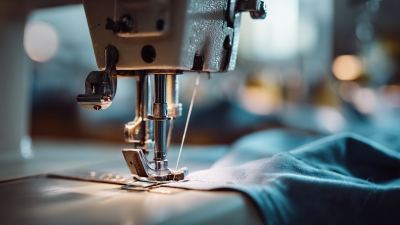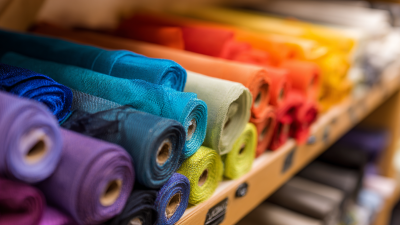- +86 13957580925
- 510515850@qq.com
- adela0928@163.com
As the fashion industry increasingly shifts toward sustainable practices, the demand for materials that balance performance, aesthetics, and environmental responsibility has never been more crucial. Among these materials, Premium Polyester Fabric is gaining attention for its remarkable versatility and low environmental impact compared to traditional fabrics. According to the Textile Exchange’s 2021 market report, recycled polyester, made primarily from post-consumer plastic bottles, accounts for approximately 14% of the global polyester market, indicating a significant growth trend in sustainable fabric choices.
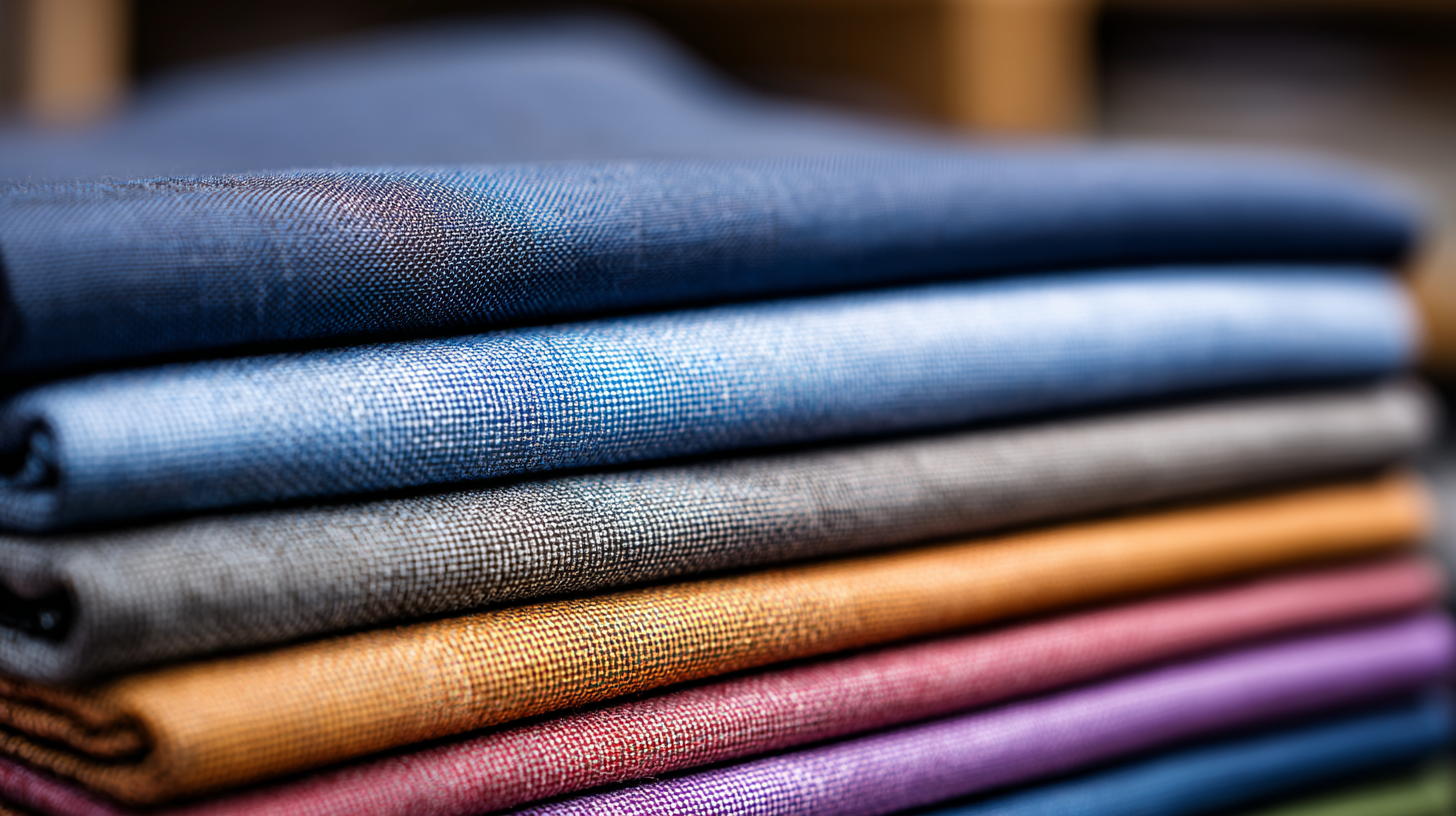
In 2023, embracing Premium Polyester Fabric not only meets consumer expectations for eco-friendly fashion but also supports circular economy initiatives. Research from GlobalData highlights that 60% of consumers prioritize sustainability when making fashion purchases, reflecting a wider industry shift towards environmentally responsible materials. This fabric is not only durable and lightweight but also offers a range of benefits that cater to both manufacturers and consumers. As brands increasingly adopt Premium Polyester Fabric, they position themselves at the forefront of the sustainable fashion movement, addressing both ecological concerns and changing consumer preferences in a rapidly evolving market.
Premium polyester fabric has emerged as a leading choice in sustainable fashion due to its versatility and eco-friendly properties. This innovative fabric is derived from recycled materials, significantly reducing waste in landfills and promoting a circular economy. As designers explore new ways to create stylish, sustainable garments, premium polyester offers a robust solution, combining durability with aesthetic appeal. It can be dyed easily and holds color well, making it ideal for vibrant collections while minimizing the environmental impact of traditional dyeing processes.
When incorporating premium polyester into your wardrobe, consider these tips: First, look for brands that prioritize recycled polyester, as this contributes to reducing resource consumption and supports sustainability. Second, choose versatile pieces that can be styled in multiple ways, maximizing wear from each item. Lastly, care for your polyester garments properly by washing in cold water and air-drying whenever possible, which not only extends the life of the fabric but also conserves energy. By making conscious choices, we can enjoy the benefits of premium polyester while supporting a sustainable fashion future.
Choosing premium polyester over conventional fabrics can significantly reduce the environmental impact of our fashion choices. Premium polyester, often made from recycled materials, uses less energy and water during production compared to traditional fabrics like cotton or wool. This shift not only minimizes resource consumption but also reduces waste, as recycling old polyester helps divert plastic from landfills and oceans. The durable nature of premium polyester also means that garments last longer, leading to less frequent replacements and ultimately less waste.
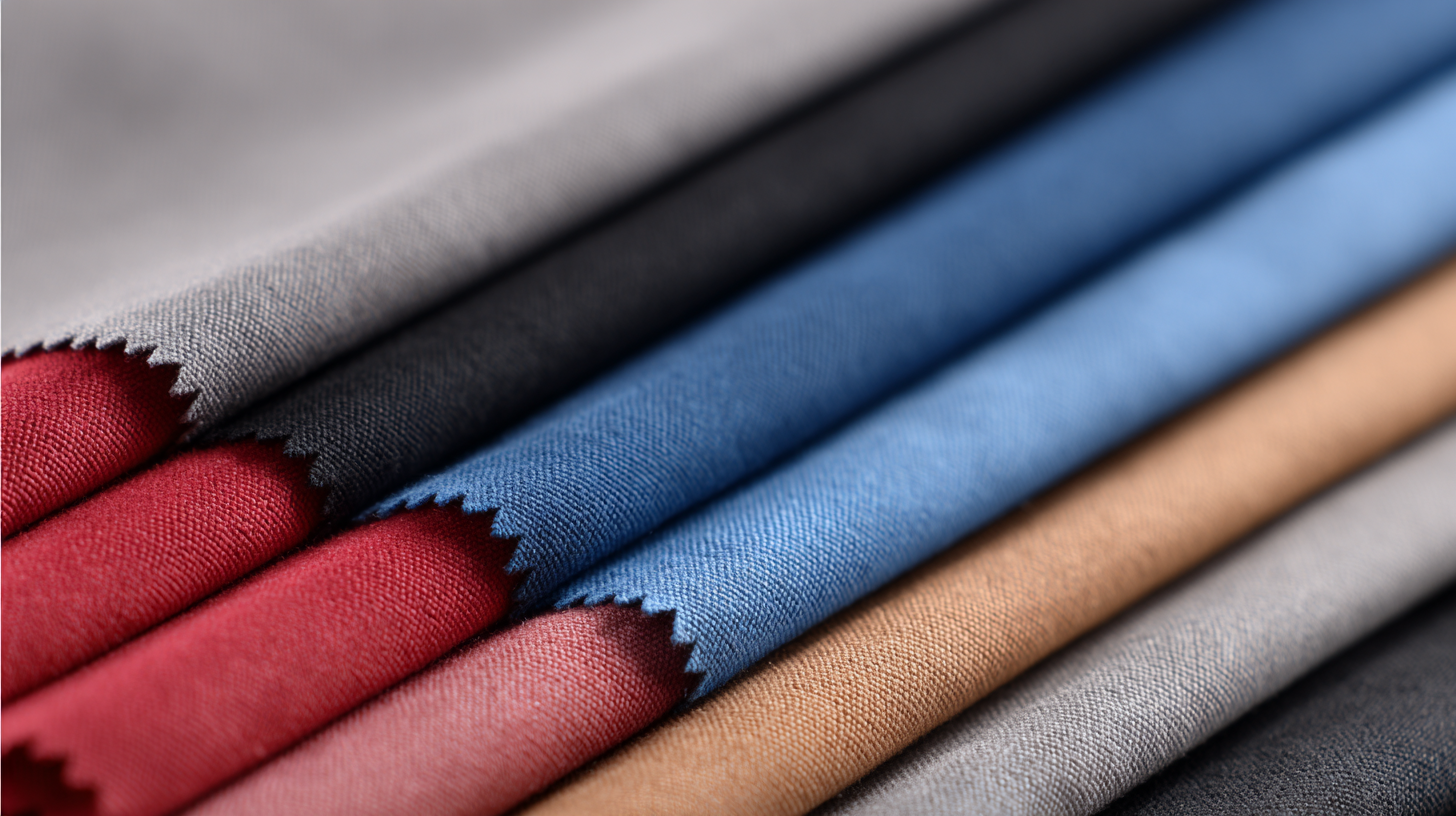
Tips for making sustainable choices include looking for certifications that indicate recycled content, such as RPET (Recycled Polyethylene Terephthalate). Always check the garment's care label to understand washing and drying instructions; proper care can extend the life of your polyester clothing, making it an even more sustainable option. Moreover, consider supporting brands that prioritize eco-friendly practices, ensuring your purchases contribute to a more sustainable fashion industry.
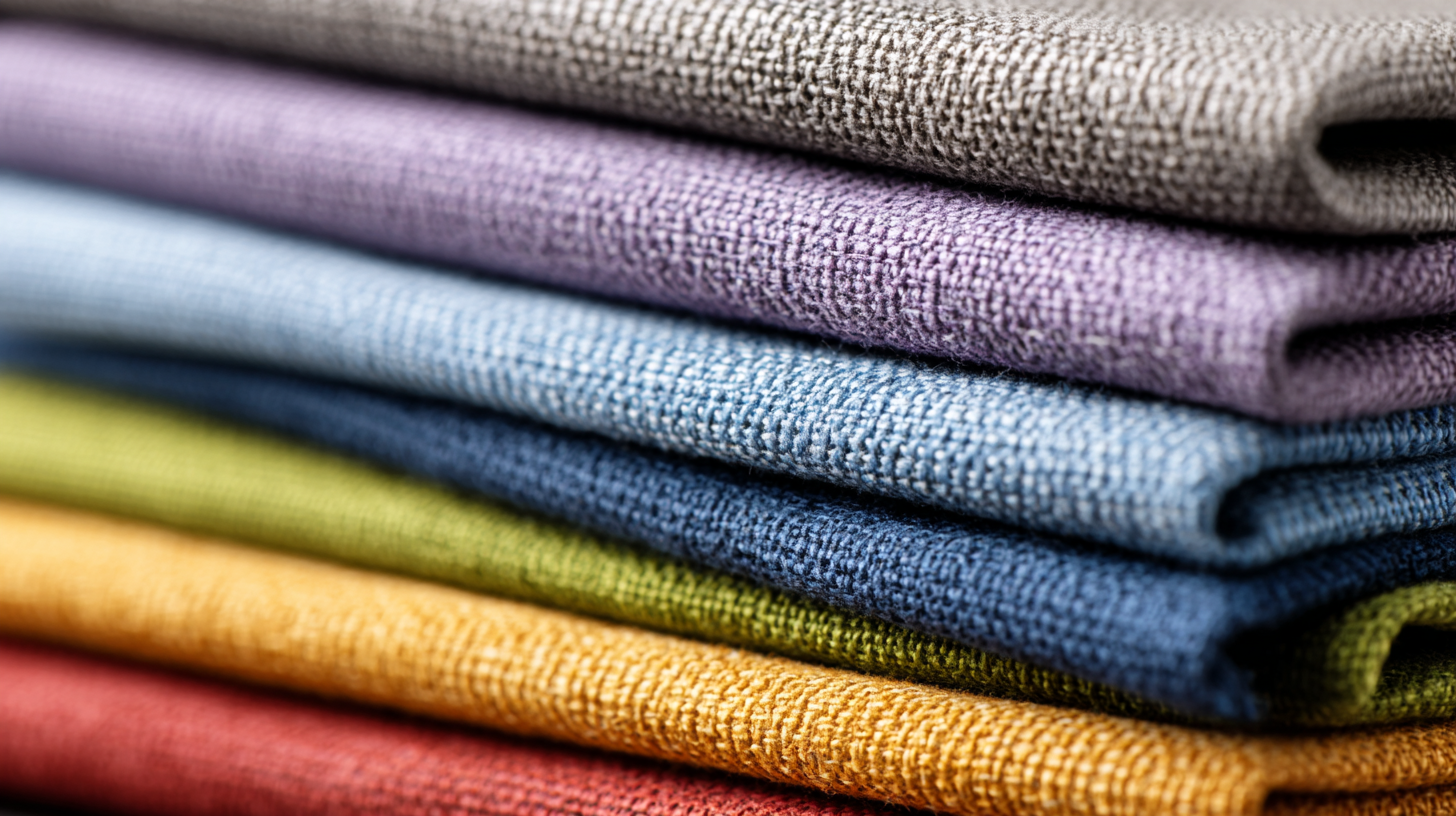 Premium polyester fabric is becoming increasingly valued in the realm of sustainable fashion due to its remarkable durability and longevity. Unlike conventional fabrics that may wear out quickly, premium polyester is engineered to withstand the rigors of everyday wear. This resilience not only ensures that garments maintain their shape and appearance over time but also reduces the frequency of replacements, aligning perfectly with sustainable fashion principles. By opting for high-quality polyester, consumers can invest in pieces that endure, thereby minimizing textile waste and contributing to a more eco-friendly wardrobe.
Premium polyester fabric is becoming increasingly valued in the realm of sustainable fashion due to its remarkable durability and longevity. Unlike conventional fabrics that may wear out quickly, premium polyester is engineered to withstand the rigors of everyday wear. This resilience not only ensures that garments maintain their shape and appearance over time but also reduces the frequency of replacements, aligning perfectly with sustainable fashion principles. By opting for high-quality polyester, consumers can invest in pieces that endure, thereby minimizing textile waste and contributing to a more eco-friendly wardrobe.
Moreover, the longevity of premium polyester enhances the overall sustainability of fashion choices. As the fashion industry grapples with the adverse impacts of fast fashion and its contribution to pollution and waste, durable materials become essential. Premium polyester can also be recycled, making it a more sustainable alternative compared to many other fabrics. By choosing garments made from premium polyester, consumers support an ethos of responsible consumption, paving the way for a fashion landscape that prioritizes quality over quantity while fostering environmental stewardship.
Premium polyester fabric has emerged as a cost-effective solution in the sustainable fashion market, demonstrating its significant appeal to both consumers and manufacturers. A report by Grand View Research indicates that the global polyester market is expected to reach $139.5 billion by 2025, driven in part by a growing demand for sustainable materials. Compared to traditional fabrics, premium polyester offers durability and versatility at a lower production cost, which enables brands to offer eco-friendly collections that are also financially accessible.
Moreover, the lifecycle of premium polyester significantly reduces waste and conserves resources, contributing positively to sustainability goals. According to the Textile Exchange, the use of recycled polyester can save up to 70% of energy and resources compared to virgin fibers. This statistic highlights the economic benefits for brands invested in sustainable practices. As a result, premium polyester is not just an environmentally responsible choice; it also allows brands to maintain competitive pricing while aligning with the increasing consumer demand for environmentally friendly fashion options.
| Benefits | Description | Environmental Impact | Cost-Effectiveness |
|---|---|---|---|
| Durability | Premium polyester fabrics are resistant to wear and tear, enhancing longevity. | Reduced waste from longer-lasting garments. | Lower replacement costs over time. |
| Low Maintenance | Easy to clean and maintain, requiring less frequent washing. | Lower water usage for washing contributes to sustainability. | Saves on laundry costs. |
| Versatility | Suitable for various climates and uses in fashion. | Promotes more efficient use of materials across collections. | Cost-effective across multiple product lines. |
| Color Retention | Holds dye well maintaining vibrant colors longer. | Fewer dyes needed over time, reducing pollution. | Reduces costs associated with re-dyeing. |
| Quick Drying | Dries faster than natural fibers, improving user convenience. | Less energy required for drying, decreasing carbon footprint. | Saves on energy costs for drying. |
| Recyclability | Can be recycled into new polyester fabrics. | Promotes a circular economy in the fashion industry. | Reduced costs in sourcing new materials. |
| Affordability | Generally less expensive compared to other sustainable fabrics. | Wider accessibility promotes sustainable choices. | Lower retail prices can attract more consumers. |
The journey of premium polyester fabric towards sustainability is rooted in innovative production processes that prioritize eco-friendly practices. Unlike traditional polyester, which relies heavily on petroleum-based resources, modern techniques increasingly utilize recycled materials, such as plastic bottles. According to the Textile Exchange’s "Preferred Fiber and Materials Market Report," recycled polyester use surged by 23% from 2020 to 2021, reflecting a significant shift toward more sustainable sourcing. This transition not only reduces dependency on virgin resources but also minimizes waste, effectively contributing to a circular economy.
In addition to sourcing, advancements in manufacturing processes, such as waterless dyeing technologies and energy-efficient machinery, further enhance the sustainability of premium polyester. A report by the Ellen MacArthur Foundation highlights that adopting these technologies can reduce water usage by up to 90% in the dyeing process alone. Brands committed to sustainable practices can leverage these innovations to create high-quality, responsible products without compromising on style or performance.
**Tips:** When choosing premium polyester fabrics, look for certifications like Global Recycled Standard (GRS) or Recycled Claim Standard (RCS), which ensure responsible sourcing and production. Additionally, consider brands that transparently share their production processes and sustainability practices to make informed decisions that align with eco-conscious values. Keep an eye out for companies investing in research and development to improve their eco-friendly practices, as these are key indicators of commitment to sustainable fashion.
